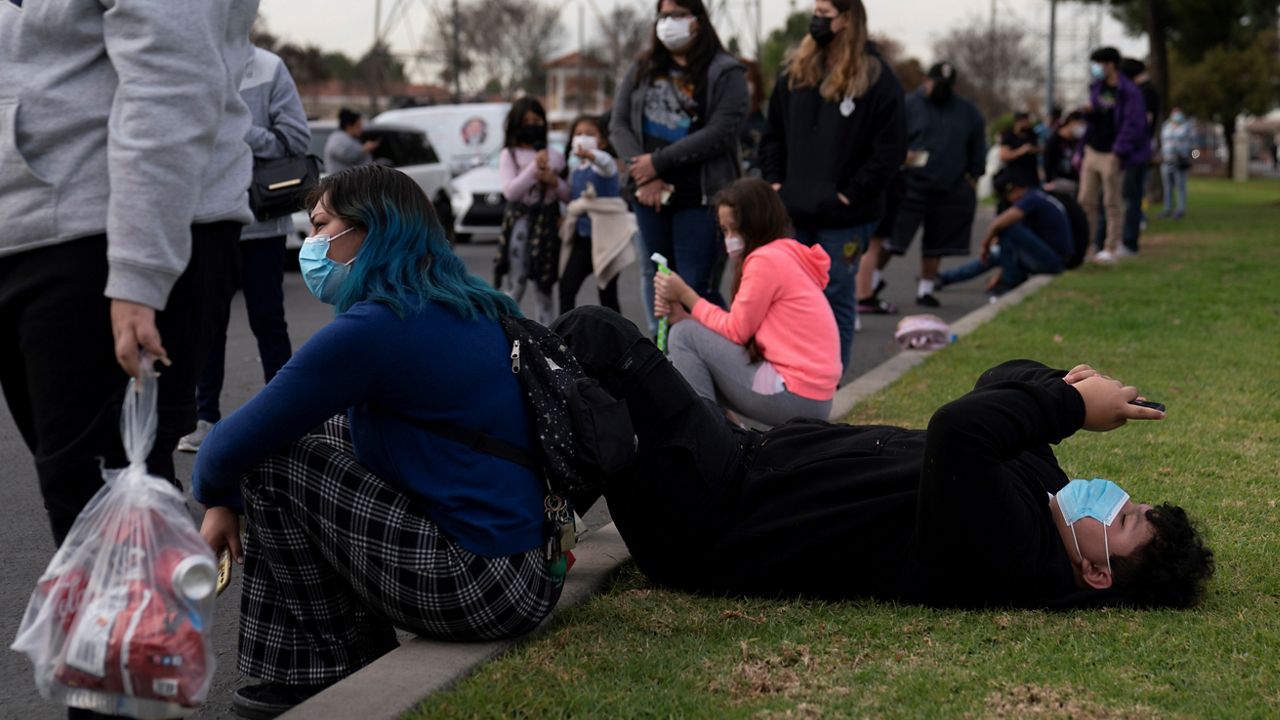SAN FRANCISCO (AP) — With California bracing for an unprecedented number of hospitalizations amid a staggering surge in coronavirus infections, health officials pleaded with residents Friday to reserve emergency rooms for true emergencies and not run to them in a search for scarce virus tests.
What You Need To Know
- Doctors say patients with minor or no symptoms have been heading to emergency departments in search of care or tests, placing additional pressure on an already-taxed hospital system
- Carmela Coyle, president and chief executive of the California Hospital Association, said the state already has a total of 51,000 people hospitalized, compared to 54,000 at the peak of last year's deadly coronavirus surge
- Some people with mild or even no coronavirus symptoms are showing up in ERs sometimes only to get a negative test result so they can attend social events
- “Please do not use emergency rooms as testing centers,” said Dr. Sara Cody, director of public health in Santa Clara County
Some people with mild or even no coronavirus symptoms are showing up in ERs sometimes only to get a negative test result so they can attend social events. The trend is placing additional pressure on already-taxed emergency rooms struggling with a rise in coronavirus hospitalizations and patients with other illnesses, some of whom deferred seeking care during the pandemic and are now face more severe health issues.
“Please do not use emergency rooms as testing centers,” said Dr. Sara Cody, director of public health in Santa Clara County.
Since the arrival of the highly transmissible omicron variant, California has seen soaring coronavirus cases with more than one in five tests coming back positive in the past week. COVID hospitalizations have exploded past 13,000 statewide, more than double the total two weeks ago.
The trend is expected to push California's total hospitalizations well above the peak of 54,000 recorded during last winter's deadly surge, said Carmela Coyle, president and chief executive of the California Hospital Association. She said 51,000 people are hospitalized now and the surge is not expected to crest until the end of the month.
“We are expecting the health care system in California will be overwhelmed,” Coyle said. “This is going to be unprecedented.”
Throughout the country, people have been scouring for hard-to-find coronavirus tests, prompting the American College of Emergency Physicians to ask them to not go looking at emergency rooms. In Southern California's Orange County, Dr. Chris Fox, chair of emergency medicine at UCI Medical Center, said 5% to 10% of people at his hospital's emergency room fit that category.
“They start to feel flu-like symptoms and they freak out and the path of least resistance is the emergency room," he said, noting his facility is seeing 200 people in the ER daily compared to 140 normally.
“When we get overrun with people who don’t need us but are using us because it is the most convenient path of least resistance, then we don’t have the capacity for people who really need us,” Fox said.
Jim Keany, co-director of the emergency department at Providence Mission Hospital in Mission Viejo, said in some cases people with no symptoms are coming to get a negative test so they return to work or school or for social reasons, he said.
“Any excuse you can imagine for why you really need a COVID test,” he said.
Prior to the latest surge, Keany said the hospital was lenient on testing but recently started only testing people who are being hospitalized or who need a test for medical reasons.
California's hospitals are facing added pressure due to staff shortages from infections among employees. State health authorities announced last weekend that hospital staff members who test positive but are symptom-free can continue working. The 100,000-member California Nurses Association criticized the move, saying it will lead to more infections.
The omicron variant spreads even more easily than other coronavirus strains, however, early studies show it is less likely to cause severe illness than the previous delta variant, and vaccination and a booster still offer strong protection from serious illness, hospitalization and death.
Cody, whose county is the most populated in Northern California, offered some hope that the end of the omicron surge could be in sight. She said testing of the county’s sewage shows less prevalence of the virus.
“We’re seeing signs that increasingly make me feel confident that the levels of infection are just starting to come down,” she said.



